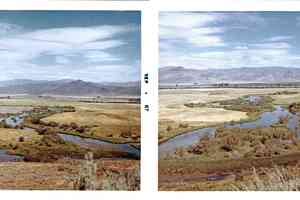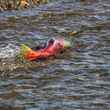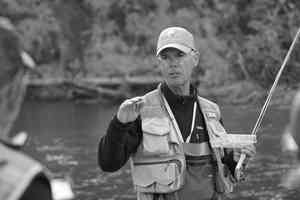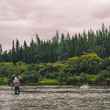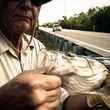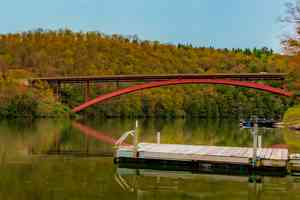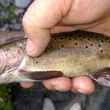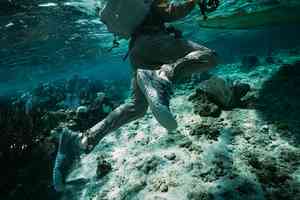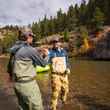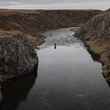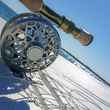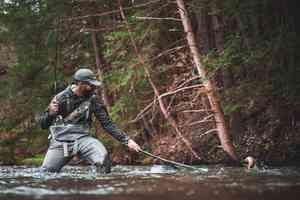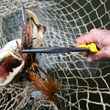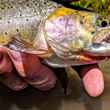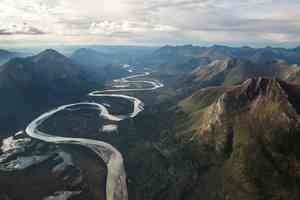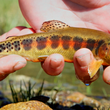The extra weight proved problematic, after trying to shoot the line somewhat unsuccessfully, George automatically tried to backcast. In his rush, he snagged the line in the fir, bending the aspen rod like a bow. Just as this was registering, the line released and shot forward, the jewelry flashing like a shooting star in the gloom.
George could no longer see the fish, but he pulled in rote, knowing this would be his last cast for the night. Bump. Bump. The wily bruiser was at it again. Perhaps he was blind with age? Bump. The lure was almost at the end of its arc and George could no longer see where the line met the water when suddenly the water erupted. Like a train coming out of a tunnel, the fish hit so hard he pulled the entire line into the air.
George gave a mighty heave to set the hook and tried to use his right hand on the line to slow it down while simultaneously palming the reel with his left. Suddenly he realized that his system had so many weak links that he didn’t know how to play the fish. Maximus began zooming around the pool in great ellipses, George playing and taking line as best he could. The force of the fish was amazing.
Like his dad, he began a constant dialog with the beast. “Oh, Max, dad was right, you are going to be the world record, don’t make this hard.”
Oblivious, the fish raged around the pool. Within fifteen minutes the mountain light was completely gone.
“Easy boy, you stay out of that snag. That’s right, come to papa.” George reeled furiously.
